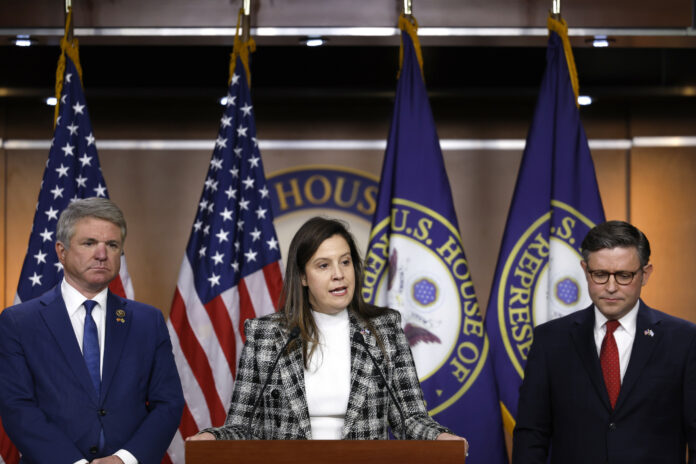A wave of recent congressional retirements has put this Congress on track to have more members retire before the next election than in the last decade—a trend that experts say could hurt Republicans in 2024.
Representative Anna Eshoo, a Democrat who represents Silicon Valley, and Representative Bill Johnson, an Ohio Republican, announced they would not run for re-election on Tuesday, making them the 10th and 11th members of Congress to announce retirement this month—the most in a single month since 2011.
So far, 16 members of Congress—eight Democrats and eight Republicans—have announced they are retiring from public office before the next election. And there could be more as retirements tend to spike after the holidays.
While much of the retirement attention has been on the Democrats, who lost their only chance of holding on to a Senate seat in solidly red West Virginia, and a handful of House members who had success in swing districts, political experts say that the surge of retirements could spell bad news for Republicans.
“In the long run, it is hard to imagine this helping the Republican Party,” political consultant Jay Townsend told Newsweek.
Townsend said that because Republicans currently hold the majority in the House, the longer that the party’s civil war and dysfunctional behavior spills into public view, the more voters will be encouraged to vote blue.
Democratic strategist and principal at Group Gordon, Michael Gordon, pointed out that some of the retiring members of Congress are leaving office solely for that reason, suggesting the retirements themselves may further sow skepticism about how effective a Republican-controlled chamber can be.
“The continued polarization and the difficulty in passing meaningful legislation are big factors in the recent wave of retirements,” Gordon said, using Representative Ken Buck as an example. Buck, a Colorado Republican, announced his retirement earlier this month, citing his frustrations with the GOP’s move to the right.
Joshua Koss, a Ph.D. student studying congressional retirements at Michigan State University, told Newsweek that leadership does not generally benefit from encouraging members to exit from Congress early because of the advantage that incumbents have. However, he pointed out the Republican caucus has continued to enforce rules that impose term limits on how long members can serve in the top positions within committees—directives that have increased the number of retirements observed from people in those positions.
“Since the 70s, retirement has been the most common way for members to leave Congress, with only the occasional ‘wave cycle’ removing more members through electoral defeat,” Koss said.
Anna Moneymaker/Getty Images
Political scientist Ian Ostrander said that members of Congress typically retire because they’ve reached an age where they’d prefer to retire, because they’re unlikely to win re-election, or because they don’t like the job.
“Congress is an odd place to work given that staff support means that members don’t really have to retire,” Ostrander, who specializes in congressional politics at Michigan State, told Newsweek. “While members do step down to actually retire, this isn’t always the main driver of retirements.”
More common then, Ostrander said, are those like Senator Joe Manchin who is likely stepping down out of fears they would lose re-election, or those like Buck who retire out of frustrations with their party. Ostrander said although congressional retirements can come in a surge when one party is anticipating a crushing defeat, he does not think that’s what’s happening today.
Gordon said it will ultimately come down to whether the Democratic candidate or the Republican candidate prevails next year.
“In the end, [retirements] will likely help the party that wins the presidency,” Gordon said. “In the current era, the candidate who wins the presidency usually has coattails that trickle down to Congress.”
Uncommon Knowledge
Newsweek is committed to challenging conventional wisdom and finding connections in the search for common ground.
Newsweek is committed to challenging conventional wisdom and finding connections in the search for common ground.


